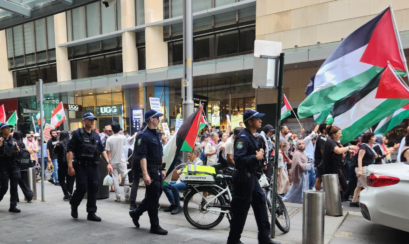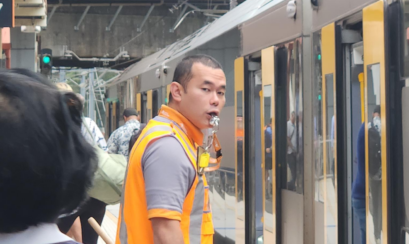Its impossible to have missed the recent uproar surrounding Qantas. Whether you were a stranded passenger or just a fascinated onlooker, the Qantas/unions dispute is everywhere in the media. But you could be forgiven for not understanding the half of it. After all, its gone on for some time.
So whats it about and what part does the law play in this ongoing saga?
Since mid-2010 Qantas has been involved in disputes with unions; first with the aircraft engineers union, then the pilots union, and finally the transport workers union (eg. baggage handlers). The main issue has been around better pay and job security. A particular concern to the unions is Qantas plan to relocate some of its operations to Asia basically meaning lower costs for the airline, which claims it cant compete with other carriers flying into Australia.
Under the Fair Work Act, the unions can strike (only union members) as long as their collective agreement has expired and theyre currently negotiating a new one – the case for all three unions. Its called protected industrial action.
After months of strikes and disruptions for passengers, Qantas made the decision to ground its entire fleet on October 29th and lock-out its employees. In other words, no flights, and workers couldnt come to work or receive pay.
Enter Fair Work Australia (FWA). Under the Act, FWA can suspend or terminate industrial action if the dispute threatens to damage the economy, or the health or welfare of the population. Clearly access to flights in and out of Australia affects our tourist industry, and therefore our economy. On October 31st FWA terminated the industrial action (all strikes, lock-outs etc. had to cease) and Qantas and the unions were given 21 days to sort it out.
If they cant by 21st November (or at least make progress), FWA will arbitrate. That means the tribunal hears evidence from both sides and ultimately decides how the issues will be resolved, a decision thats legally binding. The tribunal would therefore determine the conditions of new collective agreements, including issues like pay and job security, in light of Qantas offshore plans.
Given the number of unions involved and the time thats already been spent in negotiations, arbitration (if it happens) could be a lengthy exercise.
Regardless of outcome, this has become a major political issue and something of a test case for the striking sections of the Act. Many believe the government rightly intervened in the Qantas case. But does Labours Fair Work Australia (which replaced the loathed Work Choices) give workers the protection it claimed it would? Should employers be able to lock out workers with no notice in order to stop protected industrial action?
Australias industrial relations laws are again under the spotlight.
Latest from Stacks
03 Jul 2025
“Twenty pegs wouldn’t have done it”: questions posed by the Tasmanian jumping castle accident
Jumping castle an attraction at school event Although more than three years have passed since the Tasmanian jumping castle accident, the tragedy is still fresh in our minds. On 16 December 2021 there was an event, the “Big Day In” at Hillcrest Public School in Devonport, on the north coast of Tasmania. The weather was […]
Read the article19 Jun 2025
Exposure to toxic chemicals increases cancer risk for firefighters
NSW firefighters face a higher cancer risk than the general population and they need to be aware there are special avenues for them to claim workers compensation entitlements. Cancer risk for firefighters significantly higher than for general population A study by Monash University found the overall cancer rates for full-time firefighters were significantly higher than […]
Read the article10 Jun 2025
Photography, privacy and copyright infringement
Unforeseen level of interest in legal aspects of photography A dozen years ago, an item was published on our website about the legal aspects of photography, When photos break the law – your rights when taking photos. It attracted an unforeseen level of interest, such that in 2019 a revised and updated version was published, […]
Read the article30 Apr 2025
Changes coming to NSW workers compensation for psychological injuries
The NSW government has foreshadowed changes to workers compensation legislation that will tighten access for psychological injuries. Massive upsurge in claims The state government has warned the NSW workers compensation system is “unsustainable” unless it cuts back on victims’ eligibility for payments for workplace psychological injuries. These can include PTSD, anxiety and depression. Treasurer Daniel […]
Read the article10 Apr 2025
How not to have a mortgagee sale
Mortgagee sales increasingly common In our offices, we are suddenly seeing an unfortunate rise in mortgagee sales. A mortgagee sale occurs if a property owner can no longer meet their mortgage repayment obligations, and their lender or bank forces the property to be sold. Disadvantages of distressed property sales There are significant downsides for a […]
Read the article19 Mar 2025
Court finds school’s duty of care extends beyond school gate
The NSW Supreme Court recently ruled that a school had failed in its legal duty of care for a 14-year-old boy after he suffered an unprovoked attack, even though it occurred outside school hours and beyond the school grounds. Student attacked outside school gate after end of school day The former Sydney schoolboy won $1.75 […]
Read the article13 Mar 2025
Speed camera operator awarded $401K for assault and battery in vigilante attack
A man who committed assault and battery against a speed camera operator was ordered by a court to pay his victim $401,265 in damages. Assault and battery due to mistaken belief The NSW District Court heard the unprovoked attack happened in a car park in the town of Oberon, when the attacker mistakenly decided that […]
Read the article13 Mar 2025
Institutions can be vicariously liable for sexual abuse
Victorian government pays $8 million settlement to sexual abuse survivor Recent cases in Australia demonstrate that institutions can be vicariously liable for sexual abuse. In 2024 a survivor of sexual abuse by a teacher at a Melbourne primary school was awarded an $8 million settlement against the Victorian Education Department, in what is believed to […]
Read the article12 Mar 2025
Farm injuries show safety must be taken seriously
Farm injuries are unfortunately quite common – farming can be a dangerous occupation. Work on farms accounts for one in every five workplace deaths in NSW, with quad bikes, heavy vehicles, animal handling, biosecurity hazards, machinery, tree accidents and electrical work among the most common hazards. Farm injuries report demonstrates need for farm work safety […]
Read the article07 Mar 2025
Strata owners corporation convicted over site death
A strata owners corporation of commercial premises was recently convicted in the NSW District Court after a damaged heavy gate fell on a worker, resulting in his death. First conviction of owners corporation for failing to prevent industrial accident SafeWork NSW, which brought the court action, said it was the first conviction of an owners […]
Read the article06 Mar 2025
Police PTSD compensation claims
Police deal with terrible traumatic incidents in the course of their work, which can lead to post traumatic stress disorder (PTSD). Not only do they investigate violent crimes, where they are often first on the scene of gruesome murders, but many also face personal threats or attacks by angry or deranged members of the public. […]
Read the article28 Feb 2025
NSW rail transport strikes and the poker game of industrial relations
Pay dispute between rail workers and transport authorities The dynamics of industrial relations have much in common with the game of poker. Successful players can conceal their thoughts from opponents and bluff them into misreading the strengths and weaknesses of a hand. Over the past few months, NSW transport authorities, and the transport unions, have […]
Read the article











